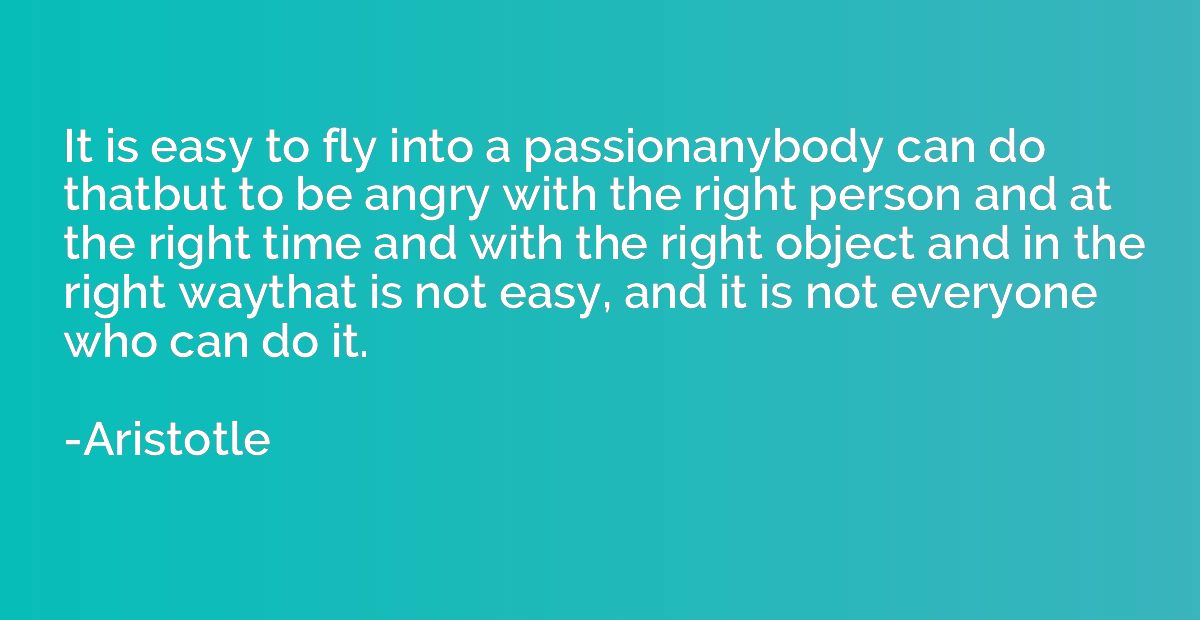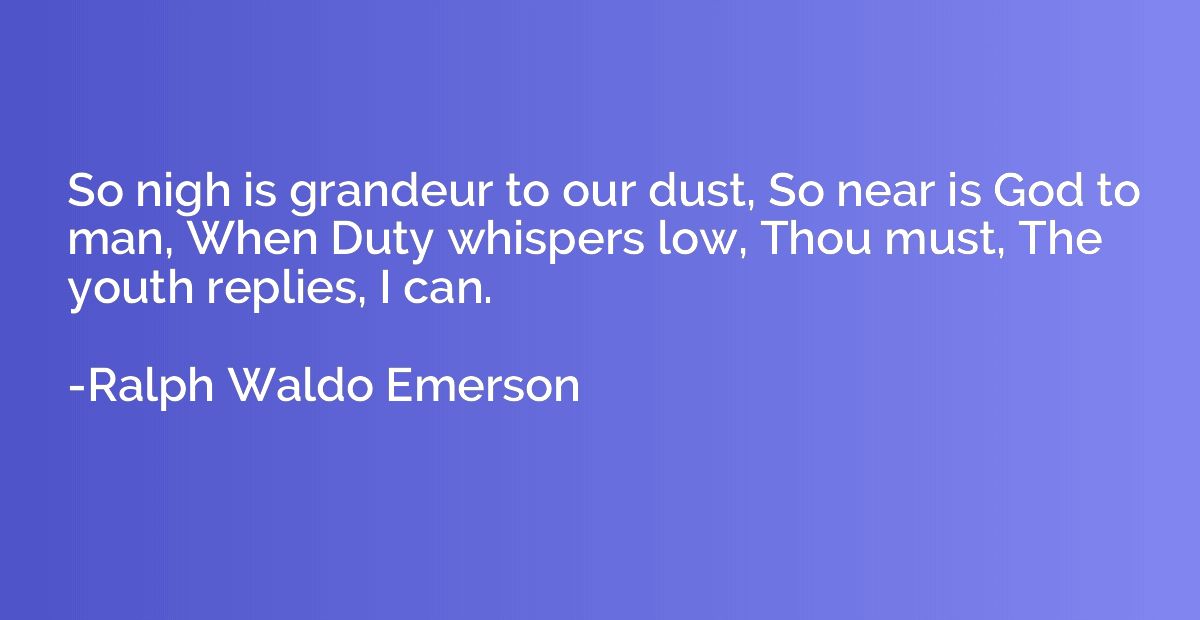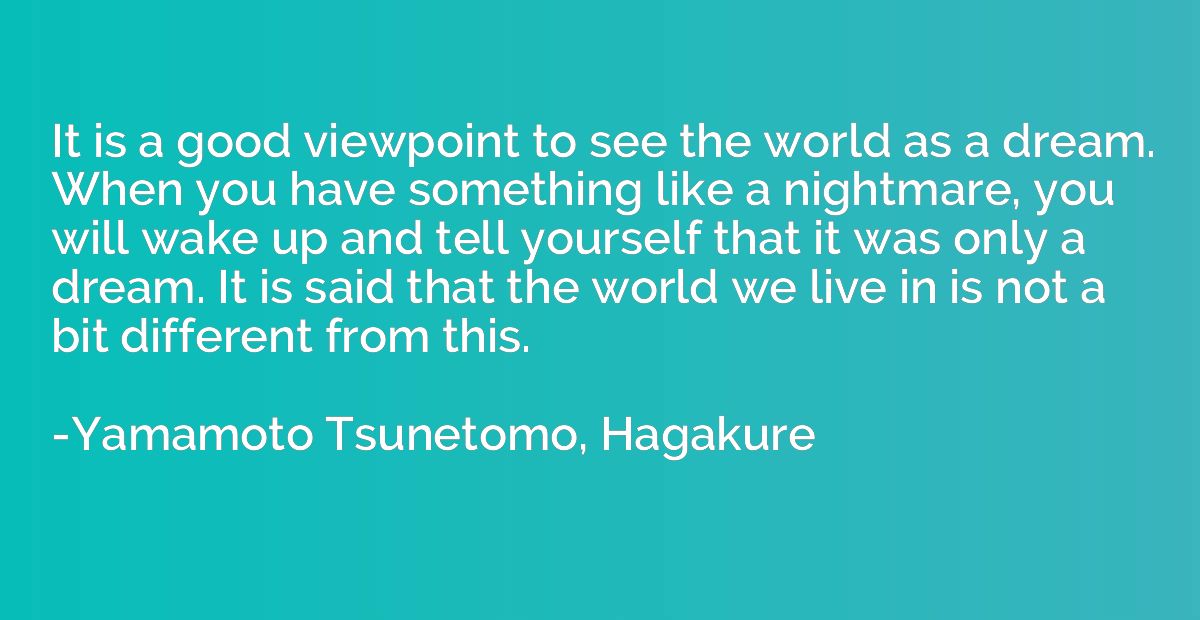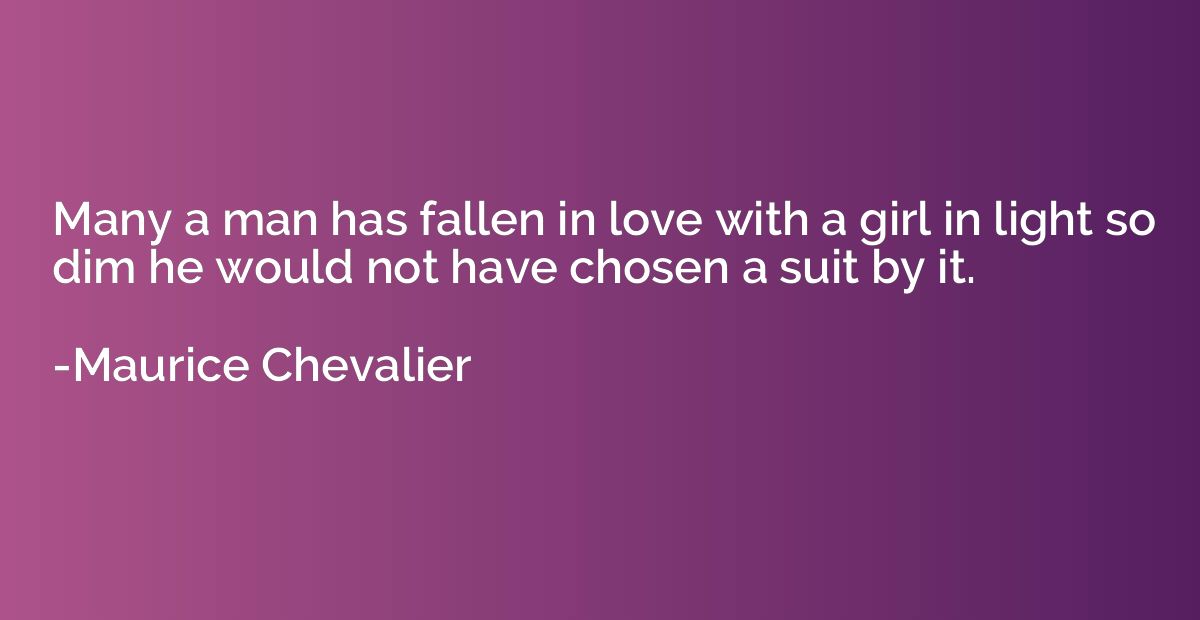Quote by Aristotle
It is easy to fly into a passionanybody can do thatbut to be angry with the right person and at the right time and with the right object and in the right waythat is not easy, and it is not everyone who can do it.

Summary
This quote highlights the distinction between simply getting angry and being righteous in one's anger. It suggests that it is effortless for anyone to lose their temper, but it takes true wisdom and control to direct anger towards the appropriate person, at the appropriate time, for the appropriate reasons, and in a suitable manner. Thus, not everyone possesses this ability to express justified anger effectively, emphasizing the importance of calm judgment and discernment in handling difficult situations.
By Aristotle














